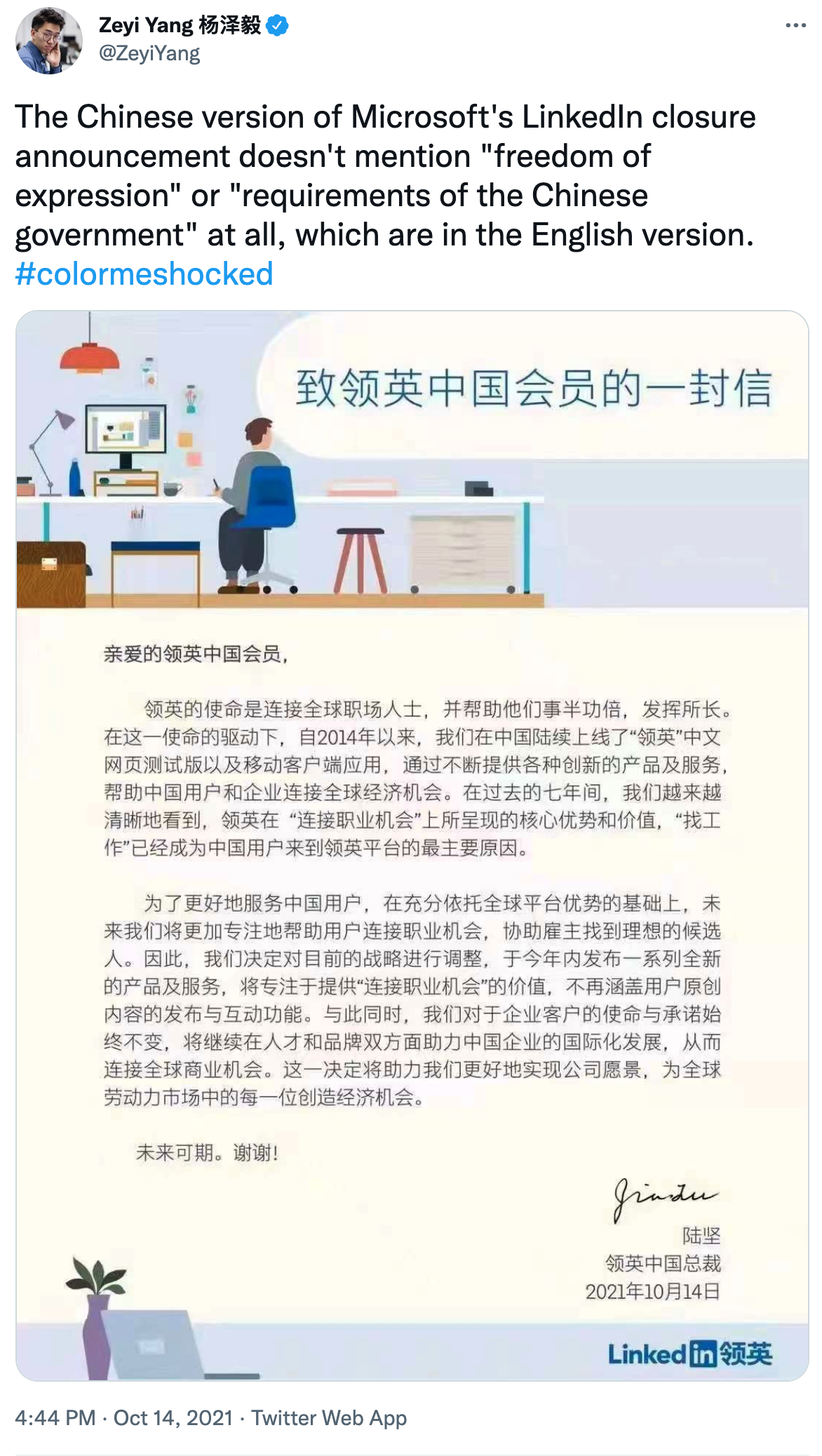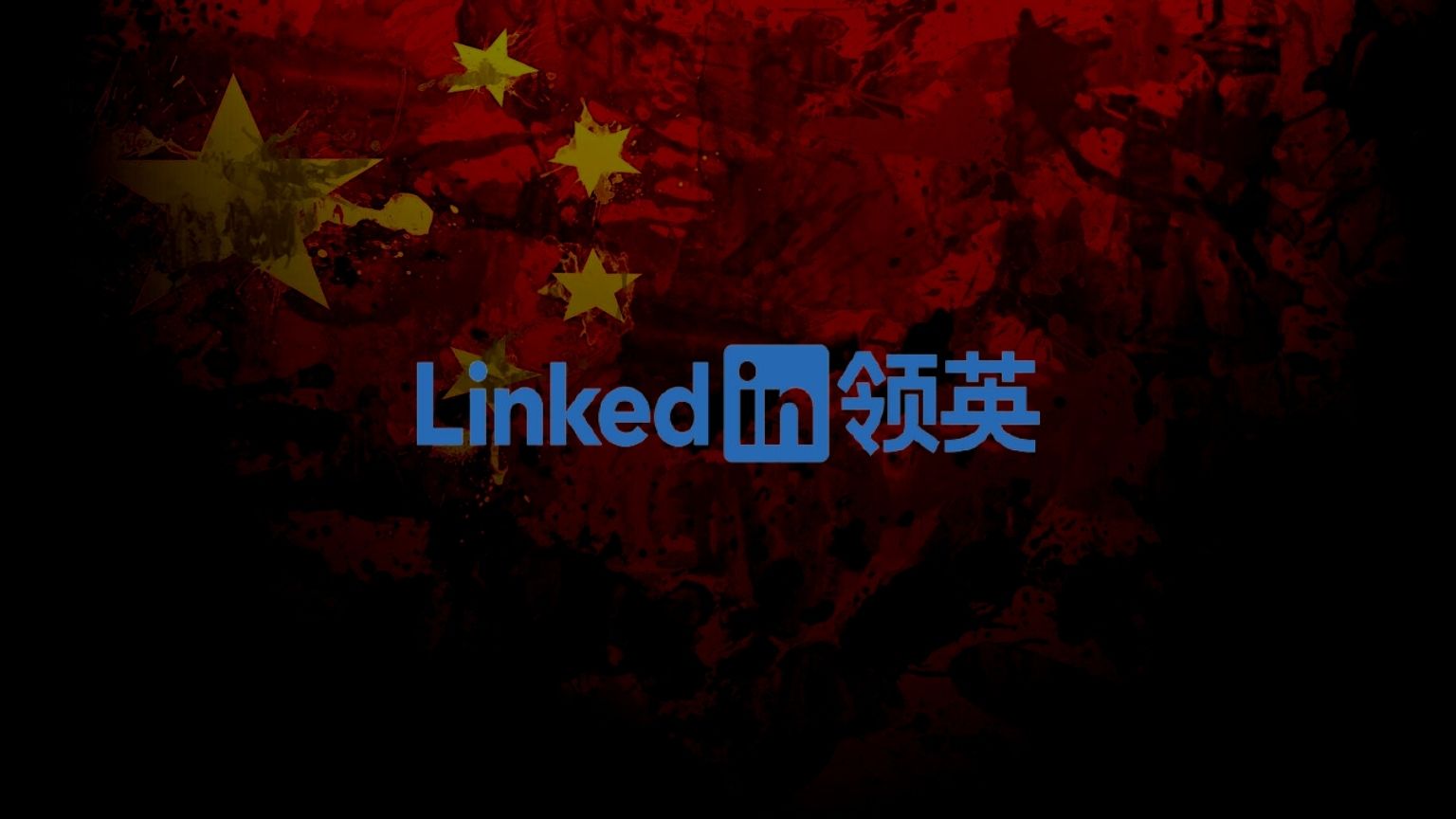Microsoft might be shutting down the Chinese version of its social network LinkedIn – but the US giant doesn’t seem to also be closing the door on doing other business in the huge market.
That’s one way to interpret the careful manner in which the announcement has been made, with marked differences in its Chinese and English versions, where the former seems to express eagerness not to offend Chinese authorities’ sensibilities.
Related: Microsoft’s LinkedIn censors US journalists in China
In typical Microsoft fashion, speaking out of both sides of the mouth, in the English version, the tech giant mentions freedom of expression and requirements of the Chinese government while explaining the decision to exit the Chinese social media scene, while these references are missing from the Chinese text.

The Chinese LinkedIn, known as Lingying, is no more after Microsoft failed to comply – although reports say not for lack of trying – with Chinese regulators’ ultimatum issued back in March, when it was given 30 days to make sure content on the platform conformed with Beijing’s strict and restrictive internet rules.
A post on LinkedIn’s company blog said that the localized Chinese version of the social network was launched in 2014 with awareness that Chinese government requirements regarding internet platforms would have to be adhered to.
Next, the post mentions LinkedIn’s “strong support for freedom of expression” and states that the company had guidelines that it would follow if it had to “reevaluate” the localized version.
A reference is also being made to the increasingly “challenging” operating environment and compliance requirements in China as one of the reasons to shut down the platform.
But these remarks are reportedly not present in the press release in Chinese, crafted for the Chinese market, and the country’s authorities.
More reason to believe that this seemingly odd choice has to do with Microsoft wanting to continue to do business in China is the announcement that a new standalone app, InJobs, will be launched in that country by the end of the year. It will be purely a job site stripped of any social networking features.
Microsoft must be hoping that this will be enough to appease Chinese censors and allow its continued presence in the market.
If you're tired of censorship and dystopian threats against civil liberties, subscribe to Reclaim The Net.









